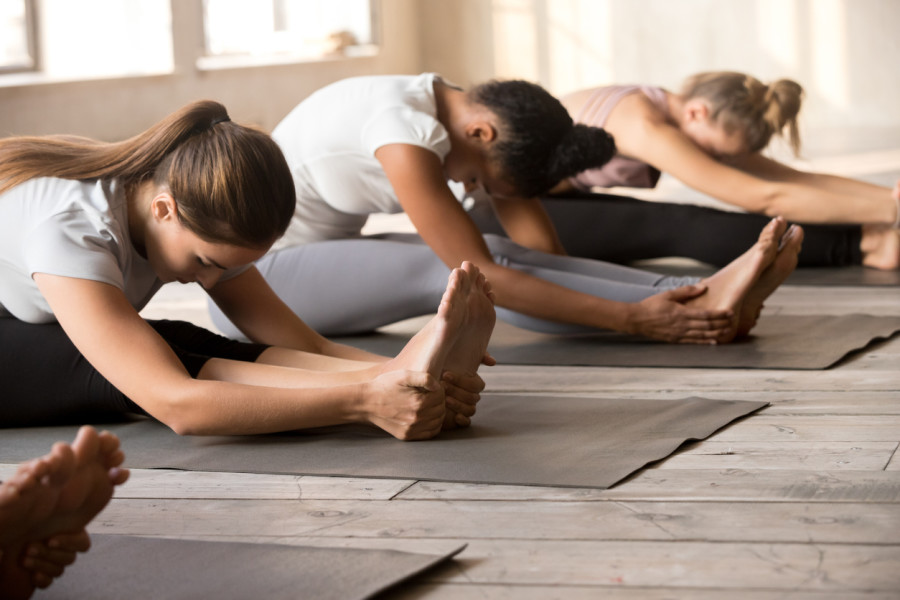Do you suffer from OCD? If so, you know that the condition can be incredibly debilitating. The good news is that there are treatments available that can help you manage your OCD symptoms. One of those treatments is yoga. Yoga is an effective way to manage OCD symptoms, and it can also help promote mindfulness and relaxation. In this blog post, we will discuss how yoga can help people with OCD, and we will provide a few yoga poses that can help manage OCD symptoms.
Contents
What Is OCD?
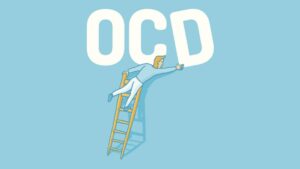 OCD is a mental health disorder that affects millions of people worldwide. OCD is characterized by obsessions (intrusive thoughts, images, or urges) and/or compulsions (repetitive behaviors or mental acts) that are time-consuming and cause significant distress or impairment in functioning.
OCD is a mental health disorder that affects millions of people worldwide. OCD is characterized by obsessions (intrusive thoughts, images, or urges) and/or compulsions (repetitive behaviors or mental acts) that are time-consuming and cause significant distress or impairment in functioning.
Also, OCD is an illness that can take over your life if you let it. It is important to understand that you are not your OCD and that you can recover from this disorder.
There can be many negative impacts of OCD that can interfere with one’s life, including:
- Difficulty concentrating or completing tasks
- Avoidance of certain situations or places
- Relationship problems
- Problems at work or school
People with OCD often suffer in silence for years before seeking help. This is because OCD can be extremely embarrassing and people may be afraid to tell anyone about their symptoms. However, it is important to seek professional help if you are struggling with OCD.
There are many different treatment options available for OCD, but one of the most effective treatments is exposure and response prevention (ERP). ERP is a type of cognitive-behavioral therapy that involves gradually exposing oneself to the things one fears and avoiding compulsions to learn that the anxiety will eventually go away on its own.
Some of these treatment options make use of mindfulness. Mindfulness is a state of present-moment awareness that can be cultivated through the practice of meditation. Research has shown that mindfulness can help reduce OCD symptoms.
If you are struggling with OCD, know that you are not alone and there is help available. Recovery is possible with the right treatment.
What Does “Yoga For OCD” Mean?
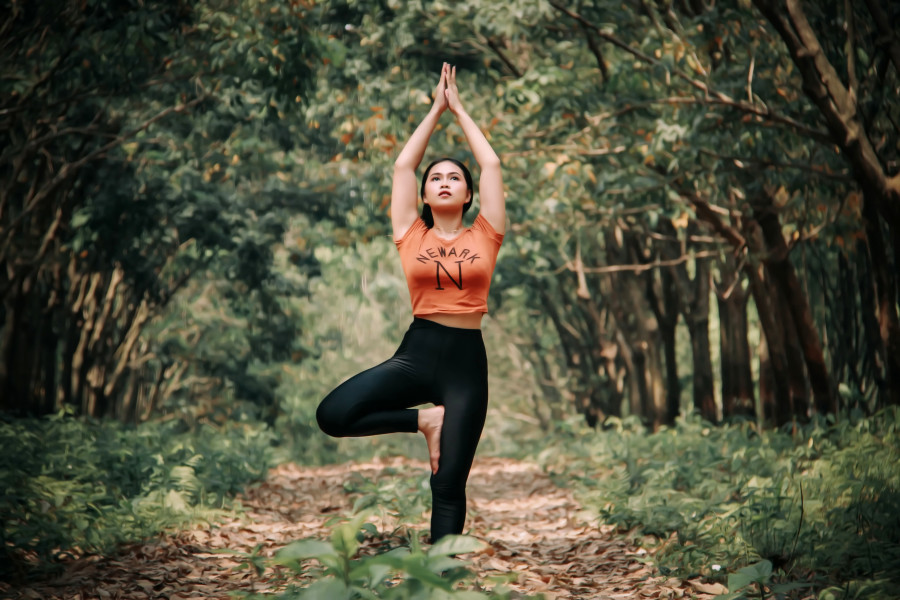
Yoga for OCD is a type of yoga that is specifically designed for people with OCD. It is a form of mindfulness-based therapy that can help people with OCD to manage their symptoms and live a more balanced life.
Yoga for OCD is not just about doing the physical postures (asanas). It is also about learning to be aware of your thoughts and feelings and letting them go without getting caught up in them. This can be a challenge for people with OCD, as they are often very good at obsessively thinking about things! However, with practice, it is possible to learn to let go of these thoughts and focus on the present moment.
There are many benefits of yoga for OCD. Yoga can help to reduce stress and anxiety, improve sleep, and increase energy levels. It can also help to improve flexibility and strength and to reduce symptoms of depression.
Different Types of Yoga For OCD
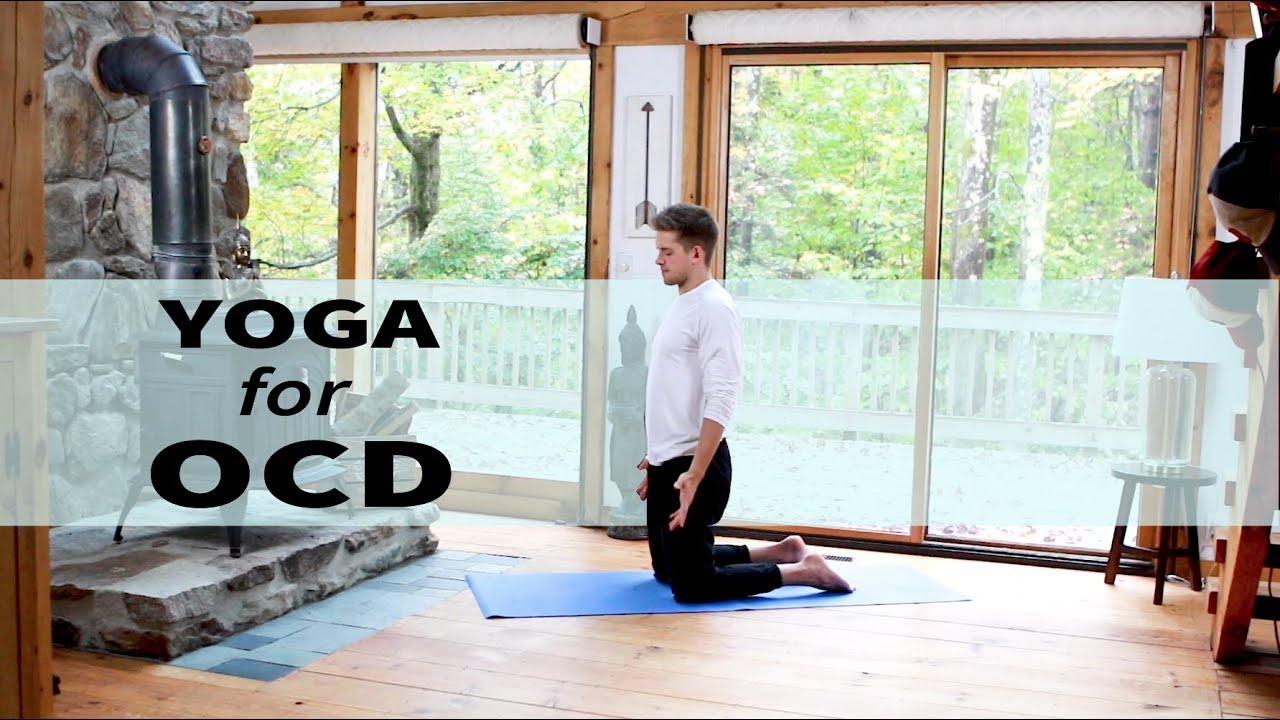
There are many types of Yoga for OCD. Some of these types are:
Iyengar Yoga
Iyengar yoga is a type of Hatha yoga. It was developed by B. K. S. Iyengar, who has written 14 books on the subject. Iyengar yoga is characterized by the use of props such as belts, blocks, and blankets to support the body in various positions. It also emphasizes proper alignment of the body and holding poses for a long period. Iyengar yoga is said to be helpful for people with OCD because it helps them to focus on their breath and be present in the moment. This type of yoga can be practiced at home with the help of a DVD or online video.
Kundalini Yoga
Kundalini Yoga is an ancient practice that can be very helpful for those suffering from OCD. This type of yoga focuses on breathing and meditation, which can help to calm the mind and ease anxiety. There are many kundalini yoga classes available online or at local studios. This type of yoga also offers private sessions, which can be tailored to your specific needs. Kundali yoga for OCD can help you to learn how to control your thoughts and ease your anxiety. It is a very effective form of treatment for many people suffering from this disorder.
Yoga Nidra
Yoga Nidra is another type of yoga that can be helpful for those with OCD. This practice involves lying down in a comfortable position and focusing on the breath. This can help to relax the mind and body, which can help manage OCD symptoms. There are many yoga Nidra classes available online or at local studios. This type of yoga also offers private sessions, which can be tailored to your specific needs. Yoga Nidra can help you to learn how to control your thoughts and ease your anxiety.
Bikram Yoga
Biologically, Bikram Yoga is a system of 26 hatha yoga postures and two breathing exercises performed in a room heated to 105°F (40.55°C) with 40% humidity. Bikram Yoga was founded by Bikram Choudhury in the early 1970s. It is derived from traditional hatha yoga techniques and focuses on building strength, flexibility, and stamina through a series of 26 postures performed in sequence over 90 minutes. The room is typically heated to around 105°F (40.55°C) with 40% humidity, which allows for deep stretching and prevents injuries.
Vinyasa Yoga
Viṅyāsa can be translated as “connection,” “placement,” or “arrangement.” It is often used to describe a specific sequence of poses (asanas) that are linked together in a flowing way. This type of yoga is sometimes also called flow yoga, because of the smooth way that the poses run together and become like a dance. The breath is synchronized with the movements, making it a very meditative and calming practice.
In this type of Yoga, the Asanas are not held for long periods as they are in Hatha Yoga. The focus is on the breath and the movement between each Asana. Vinyasa Flow is a very popular type of Yoga, especially in India. It is often taught in gyms and fitness centers as well as yoga studios.
Yin Yoga
Yin Yoga is a form of mindfulness meditation in yoga. It is a slow-paced style of yoga, incorporating props such as blankets and bolsters to support the body in various postures. Yin Yoga poses are usually held for three to five minutes.
Yin Yoga can be an effective tool for treating OCD because it helps to calm and focus the mind. The practice of holding poses for long periods encourages practitioners to stay present in the moment and let go of intrusive thoughts. In addition, the use of props can help to ground the body and ease anxiety. The posture of each pose also helps to release tension from the body.
How To Select Which Type of Yoga For OCD Is Effective For You?
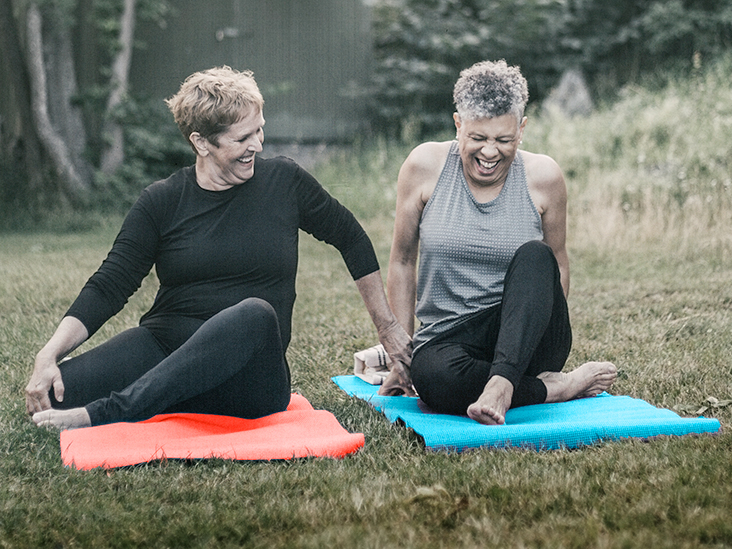
Selecting which type of yoga will work best for you can be a daunting task, but it is important to find one that you feel comfortable with and that works for your body. There are many different types of yoga, each with its benefits. If you have OCD, certain types of yoga may be more beneficial for you.
These are some of the factors that you should consider when selecting a type of yoga for OCD:
-Your level of fitness: If you are not very physically fit, you may want to start with a gentler form of yoga, such as Hatha or kundalini. If you are more physically fit, you may be able to handle a more strenuous form of yoga, such as ashtanga or Bikram.
-Your symptoms: If your OCD symptoms are mild, you may benefit from a relaxation-based form of yoga, such as yin or restorative. If your OCD symptoms are more severe, you may benefit from a form of yoga that is designed to increase energy and release tension, such as vinyasa or power yoga. It also helps people become more flexible.
-Your goals: What are you hoping to achieve through yoga? If you are looking for a way to reduce stress and improve your overall health, a gentle form of yoga may be best for you. If you are looking for a way to increase your strength and flexibility, a more strenuous form of yoga may be best for you.
-Your Time Commitment: How much time do you have to dedicate to yoga? If you only have a few minutes a day, a shorter, less intense form of yoga may be best for you. If you have an hour or more, you may be able to commit to a longer, more intense form of yoga.
-Your budget: Yoga classes can range in price from very affordable to quite expensive. If cost is a concern, there are many great options for free or low-cost yoga classes online or at your local community center.
Once you have considered all of these factors, it is time to start exploring the different types of yoga and finding the one that is right for you.
Tips To Keep In Mind While Practising Yoga For OCD
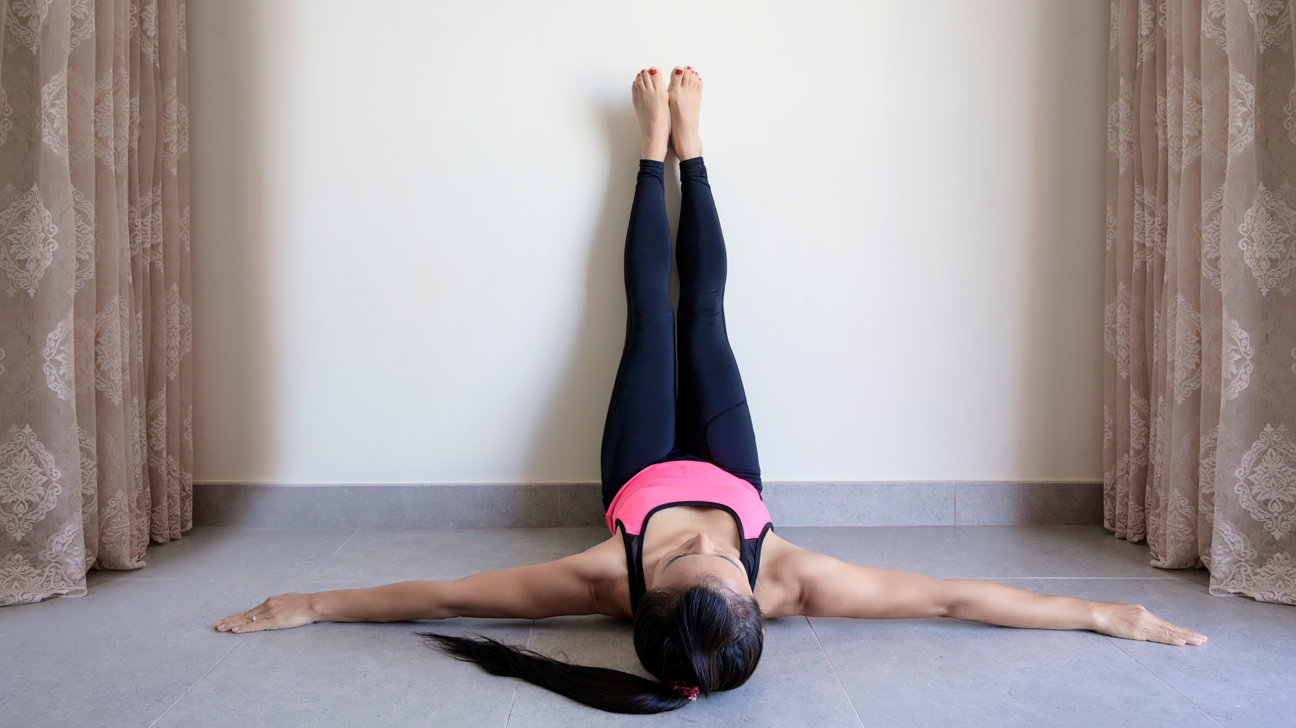
There are many tips to keep in mind while practicing yoga for OCD. However, the most important thing to remember is to be mindful of your thoughts and actions.
Here are a few things to keep in mind while practicing yoga for OCD:
- Be aware of your breath and focus on inhaling and exhaling deeply
- Focus on your body and how it feels while you are in each position
- Release any judgment you have towards yourself or your practice
- Allow yourself to be present at the moment and let go of any expectations you may have
- Be kind to yourself and accept where you are at in your journey
If you can focus on these things, then you will be well on your way to recovery. Remember, the most important thing is to be mindful of your thoughts and actions. If you can do that, then the rest will fall into place.
Benefits of Yoga For OCD
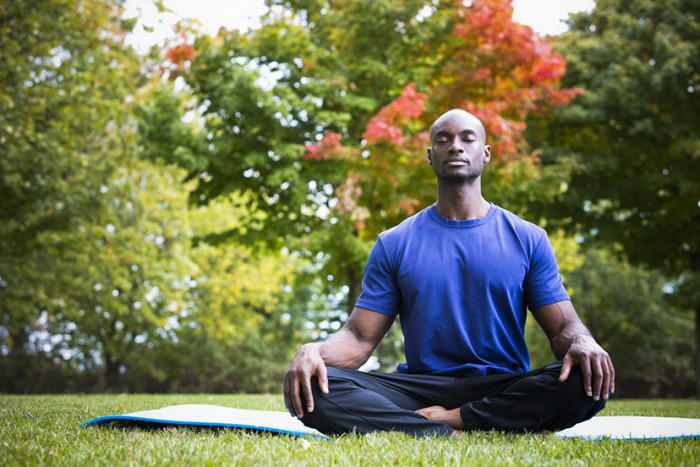
There are many benefits of yoga for people suffering from OCD. Some of these benefits are:
Helps To Focus
One of the main benefits of yoga is that it helps to focus. For people suffering from OCD, this can be extremely helpful in redirecting their thoughts away from their obsessions and into the present moment. Sometimes there may also be an element of distraction involved in this process, but ultimately it can help to lessen the grip that OCD has on sufferers.
Reduces Stress Levels
Yoga has also been shown to be effective in reducing stress levels. This is important for people with OCD because high levels of stress can trigger their symptoms. By managing stress levels through yoga, people with OCD can help to prevent their symptoms from becoming worse.
Improves Quality Of Life
Yoga has also been shown to improve the quality of life for people with OCD. This is because it can help to reduce the symptoms of OCD, which can have a major impact on daily life. In addition, yoga can also help to improve mental and emotional well-being, which can further improve quality of life.
Calms The Nervous System
Yoga is also beneficial for calming the nervous system. This is important for people with OCD because often their nervous system is on overdrive, which can exacerbate their symptoms. By calming the nervous system, yoga can help reduce some of the symptoms of OCD.
Increases Body Awareness
Another benefit of yoga is that it increases body awareness. For people with OCD, this can help recognize when they are starting to experience anxiety or obsessive thoughts so that they can take steps to bring themselves back to the present moment.
Makes You More Resilient
Yoga can also make people more resilient. This is important for people with OCD because often their symptoms can be very overwhelming. By building resilience, people with OCD can better handle their symptoms and feel more capable of dealing with them.
Makes You More Aware
Yoga also makes people more aware. This is important for people with OCD because it can help them to be more aware of their thoughts and feelings. Oftentimes, people with OCD are not fully aware of what they are thinking or feeling until it is too late. By becoming more aware, people with OCD can take steps to prevent their symptoms from getting worse.
There are many benefits of yoga for people suffering from OCD. These benefits can help to improve the quality of life for those with OCD and help to lessen the grip that OCD has on sufferers. If you or someone you know suffers from OCD, consider trying yoga as a way to help manage symptoms and improve overall well-being.
Conclusion
OCD is a debilitating mental illness that can control every aspect of a sufferer’s life. It is important to find an effective treatment that works for you. For some people, this may be medication, for others it may be therapy, and for others, it may be yoga.
Yoga is an effective treatment for OCD. It can help to reduce the intensity and frequency of OCD symptoms, and can also help to improve quality of life. If you are considering yoga as a treatment for OCD, it is important to find a qualified teacher who is experienced in teaching people with OCD. Yoga can be an incredibly powerful tool on the road to recovery from OCD. One can also supplement their yoga practice with other treatments such as medication and therapy.
There are many benefits of yoga, and it can be a great way to help reduce stress and anxiety. If you are struggling with OCD, yoga may be a good option for you. Talk to your doctor or therapist about whether yoga could be a helpful treatment for you. Your mental health — Your psychological, emotional, and social well-being — has an impact on every aspect of your life.
Hope this article was of help to you! If you are suffering from OCD, you may seek help from Therapy Mantra. We have a team of highly trained and experienced therapists who can provide you with the tools and skills necessary for overcoming OCD. Contact us today to schedule an online therapy or download our free OCD treatment app on Android or iOS for more information.
